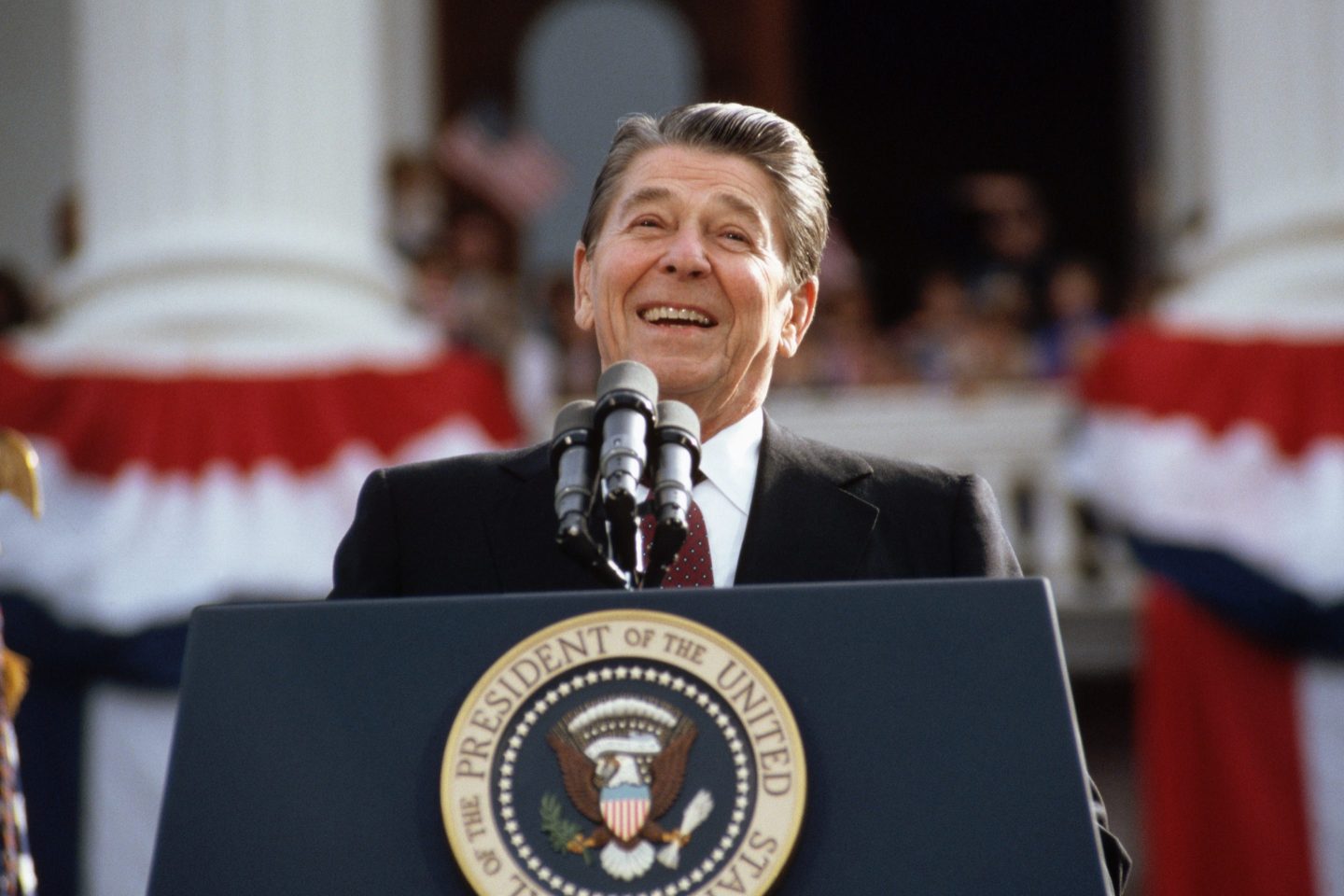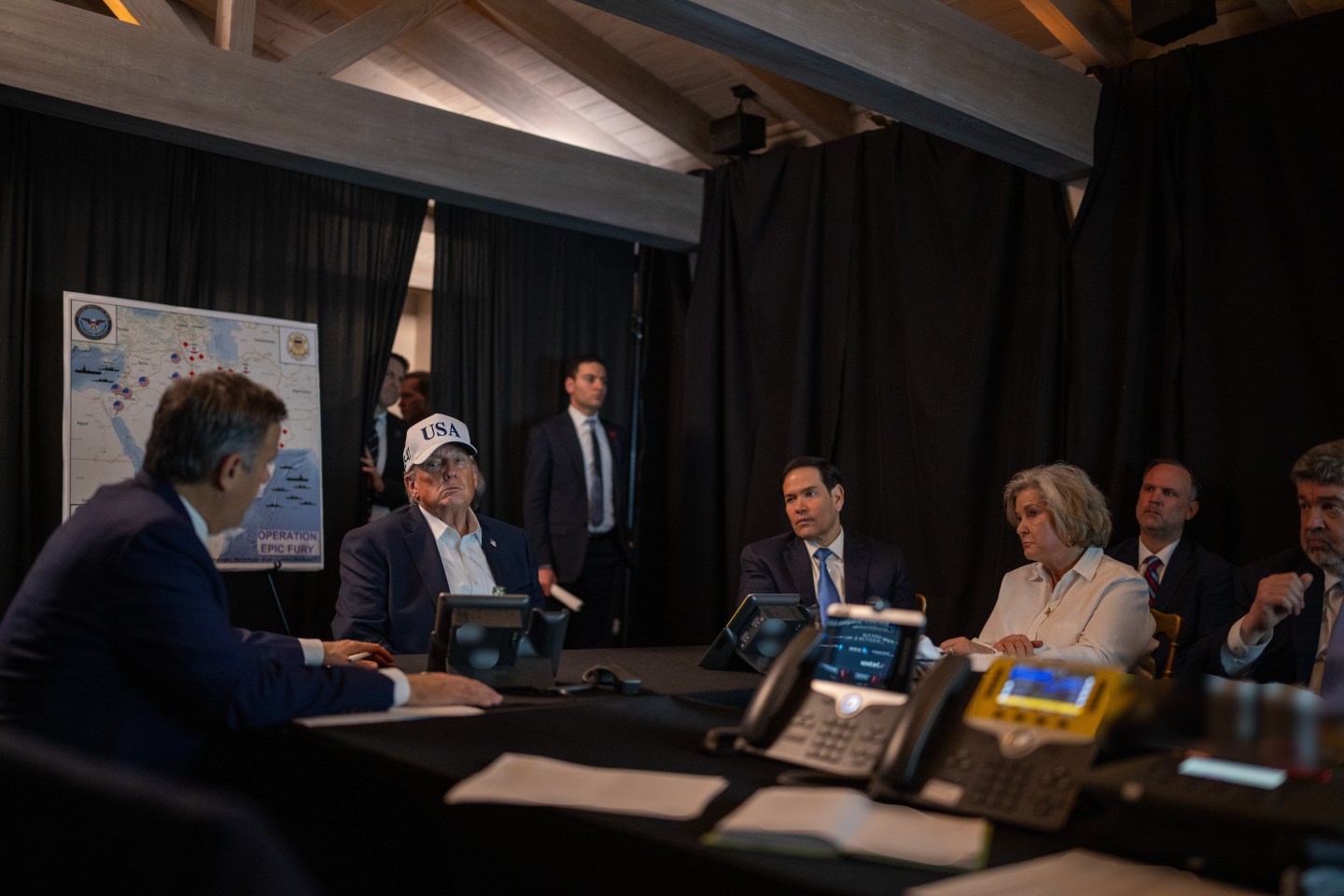Treasury Secretary Scott Bessent had sharply contrasting views of longtime U.S. ally Canada, which is a top target in President Donald Trump’s trade war, and Argentina, which is getting a U.S. currency lifeline.
In an interview Sunday on NBC’s Meet the Press with Kristen Welker, he was asked about the additional 10% tariff Trump said he will impose on Canada due to an anti-tariff TV ad that Ontario’s government aired.
“This is a kind of propaganda against U.S. citizens. It’s psy-ops,” Bessent replied, using shorthand for psychological operations.
The ad features remarks from President Ronald Reagan criticizing tariffs. Ontario’s premier said he would take down the ad on Monday, after the first two games of the World Series between the Toronto Blue Jays and the Los Angeles Dodgers.
In a Truth Social post on Saturday, Trump claimed the ad was a “misrepresentation of the facts,” though trade experts say it was not, and a “hostile act.” He had earlier called off talks with Canada over the ad.
He also said it was meant to influence the Supreme Court, which will hear arguments on Nov. 5 in a case disputing his ability to invoke International Emergency Economic Powers Act to justify tariffs
The Canadian prime minister’s office and the Ontario premier’s office didn’t immediately respond to requests for comment.
But during an economic forum in Malaysia, Prime Minister Mark Carney appeared to sideline Ontario, telling reporters that talks with the U.S. are the “sole responsibility of the government of Canada.”
Later in the NBC interview, Bessent was asked about a $20 billion currency swap line that the U.S. extended to Argentina, which has struggled to prop up its peso.
The rescue has come under criticism, including from Republicans like Rep. Marjorie Taylor Greene, who questioned how helping Argentina with billions of dollars is “America first” while Americans are struggling with high costs.
“It is America first because we are supporting a U.S. ally,” Bessent said. “There will be no taxpayer losses. This is a swap line. This is not a bail-out.”
He added that the money for Argentina comes from the Treasury Department’s Exchange Stabilization Fund, which has never lost money and will not with its current program.
However, U.S. currency intervention has so far failed to halt the peso’s slide. And Wall Street expects Argentine President Javier Milei, who has drawn praise from Trump and other Republicans, to devalue the peso soon after the country’s midterm elections on Sunday, with some analysts wondering if the U.S. will get paid back.
Bessent reiterated that the administration seeks to prevent the emergence of another “failed state” in Latin America that would join Venezuela.
“So we think it is much better to use American economic power up front to stabilize a friendly government and lead the way,” he added. “Because we’ve got many other governments in Latin America, Bolivia, Ecuador, Paraguay, who all want to follow. So I would rather extend a swap line than be shooting at the boats carrying drugs … coming out of Venezuela.”













